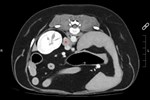New international antimicrobial use guidelines published for treating bacterial skin infections in dogs
A group from The Royal Veterinary College (RVC), alongside eight international counterparts, have developed new evidence-based antimicrobial use guidelines for veterinary practitioners treating canine pyoderma (bacterial skin infections in dogs). These new guidelines are designed to reduce inappropriate antimicrobial use and aid canine welfare, as well as support Antimicrobial Stewardship against antimicrobial resistance so that medicines can be effective for many years to come.

Canine pyoderma is one of the most common conditions seen in small animal veterinary practices across the world and is often treated with antimicrobials. However, there is growing international concern about the overuse and misuse of antimicrobials in both human and animal medicine, which is leading to an emergence of drug-resistant bacteria and threatening the effective treatment of infections.
Therefore, the team set out to explore the current treatment protocols and develop evidence and consensus-based recommendations on how best to treat bacterial skin infections in dogs.
A multidisciplinary approach was taken, with collaboration between veterinary dermatologists, clinical microbiologists and other specialists. The team conducted an evidence review and built a consensus of recommendations, combining scientific evidence with real-world insights.
The new guidelines are supported by the ISCAID (International Society for Companion Animal Infections) and provide veterinary practitioners with guidance on the diagnosis and investigation of canine bacterial skin infections. The guidelines offer clear recommendations for when antimicrobials should be considered, and which classes of antimicrobials are most appropriate to choose from.
As part of this guidance, recommended drug dosages have also been updated based on newly available information. This will ensure that available antimicrobial drugs can be used as responsibly as possible and remain effective for a long as possible. This is key in promoting Antimicrobial Stewardship, which is focused on educating and supporting health care professionals to follow evidence-based guidelines for prescribing and administering antimicrobials.
As well as the open-access guidelines, a short synopsis presenting the key consensus statements and a ‘Seven Moments of Responsible Canine Pyoderma Treatment’ infographic have been delivered to provide user-friendly resources and further support best practice.
Anette Loeffler, Professor in Veterinary Dermatology and Cutaneous Bacteriology at the RVC and chair of the ISCAID author group, said:
“After several years of analysing evidence, updating information and evaluating experience, we are excited and relieved to finally see the guideline documents published and free to use around the world.”
Siân-Marie Frosini, Senior Lecturer in Veterinary Clinical Microbiology at the RVC and co-author of the guidelines, said:
“These guidelines highlight the value of multi-disciplinary teams that incorporate clinical microbiologists alongside other veterinary specialists to provide recommendations that can support best practice in antimicrobial use.”
The guidelines are available here: https://pubmed.ncbi.nlm.nih.gov/40338805/
PDF of infographic available here: PDF (2.3kb)
Notes to Editors
For media enquiries, please contact:
- rvc@plmr.co.uk
- Press Line: 0800 368 9520
About the RVC
- The Royal Veterinary College (RVC) is the UK's largest and longest established independent veterinary school and is a Member Institution of the University of London.
- It is one of the few veterinary schools in the world that hold accreditations from the RCVS in the UK (with associated recognition from the AVBC for Australasia, the VCI for Ireland and the SAVC for South Africa), the EAEVE in the EU, and AVMA (probationary) in the USA and Canada.
- The RVC is ranked as the top veterinary school in the world in the QS World University Rankings by subject, 2025.
- The RVC offers undergraduate and postgraduate programmes in veterinary medicine, veterinary nursing and biological sciences.
- The RVC is a research-led institution, with 88% of its research rated as internationally excellent or world class in the Research Excellence Framework 2021.
- The RVC provides animal owners and the veterinary profession with access to expert veterinary care and advice through its teaching hospitals and first opinion practices in London and Hertfordshire.
You may also be interested in:
-
New RVC study reveals breed predispositions and risk factors for rare adrenal tumour in dogs
Novel research from the Royal Veterinary College (RVC), in collaboration with the Faculty of …

